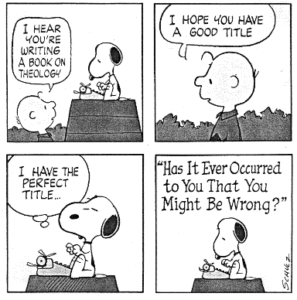This year we meet Jesus through the experiences of Matthew. He probably used a few of the letters of Paul and the Gospel of Mark as his source material filling in the details that Mark leaves out. Yes, the author of Matthew may have embellished a bit based on his experiences and the time he lived. All the gospels and epistles do it. You may think that n ever happens today, but well, you know different. A couple of weeks ago we met the first disciples (Matthew 4:18-23) that Jesus called: Simon Peter, Andrew, James, and John. It was the beginning of their disciple story. Have you ever thought about how your disciple story begins?
ever happens today, but well, you know different. A couple of weeks ago we met the first disciples (Matthew 4:18-23) that Jesus called: Simon Peter, Andrew, James, and John. It was the beginning of their disciple story. Have you ever thought about how your disciple story begins?
Did it begin with a parable? Try this to begin remembering. “Look in a mirror and see if you can see yourself without seeing your eyes seeing yourself.”(1)
The parables that Jesus told flip our thinking and our vision. New Testament scholar John Dominic Crossan notes, “First, parable is story, that is, a tensive sequence of beginning, middle, and end in a narrative that lures you into its plotted micro world to participate as an outsider-insider in its ongoing adventure.”(2) The parables describe the world, relationships, and community as the way it could be, should be, would be, might be were those that believe in the God that Jesus proclaimed experiencing good news; and being living good news. Often, it takes walking around in another person’s shoes to see the world through another lens. Yes, that takes a lot of work. My guess is your disciple story begins with you seeing or experiencing God differently, and that there is something more to your story than accepting Christ as your savior and being baptized.
Maybe one or two of the parables can connect us as followers of Jesus. Which one or two of the parables best frame the good news of God or describe the kindom of God? Which parable provides connections to community and to practicing the way of Jesus which, in our current context, might be different than what is called Christianity.
I think the parables have the power to connect us, we disciples of Jesus, because they work on us and help us be better people. Many of the people I know, non-Christian and Christian alike, work a parable or two every day. Most often without any thought. So, I’ll be thinking about the parables this spring, with a few colleagues and friends, trying to choose one or two that connect us and our discipleship following Jesus, whom we call Christ. I look forward to the journey. Join us. I’ll be posting the conversations here.
——
Note
1. John Dominic Crossan, The Power of Parable: How Fiction by Jesus Became Fiction About Jesus (New York: HarperOne, 2012), 243.
2. Crossan, The Power of Parable, 243.
